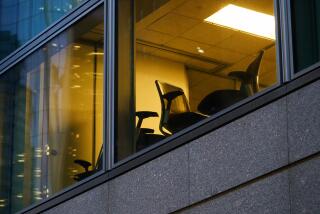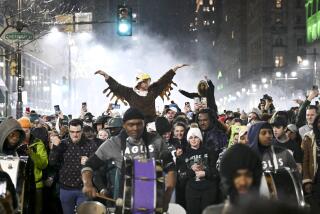18% of U.S. workers have lost jobs or hours since coronavirus hit, poll finds

As fallout from the coronavirus pandemic hits the economy, it’s slamming the American workforce: Some 18% of adults reported that they had been laid off or that their work hours had been cut, a new poll found.
The proportion affected grew for lower-income households, with 25% of those making less than $50,000 a year reporting that they had been let go or had their hours reduced, according to a survey released Tuesday by NPR, PBS NewsHour and Marist of 835 working adults in the contiguous United States.
The poll was conducted Friday and Saturday, just after stocks began their steep plunge and normal life started grinding to a halt, with schools and places of worship closing, concerts and conferences being canceled and sports leagues suspending their seasons.
The same poll found that about 56% of Americans considered the coronavirus outbreak a “real threat,” while 38% said it was “blown out of proportion.”
In recent days, state and local officials have banned large gatherings and ordered bars and theaters to close in an effort to slow the spread of the virus.
Ski resorts have shut, as have Disneyland and Universal Studios theme parks. With the outbreak prompting new travel restrictions, airlines, cruise lines and other travel businesses braced for losses, anticipating layoffs, furloughs or voluntary buyouts. A trade group representing U.S. airlines called on the federal government to provide at least $58 billion in grants, loans and tax breaks to respond to the “staggering” economic blow.
L.A. Mayor Eric Garcetti and California Gov. Gavin Newsom ordered restaurants to halt dine-in service. Those unable to adapt quickly may end up closed permanently, so the L.A. dining landscape could look dramatically different in a few months.
More to Read
Inside the business of entertainment
The Wide Shot brings you news, analysis and insights on everything from streaming wars to production — and what it all means for the future.
You may occasionally receive promotional content from the Los Angeles Times.











